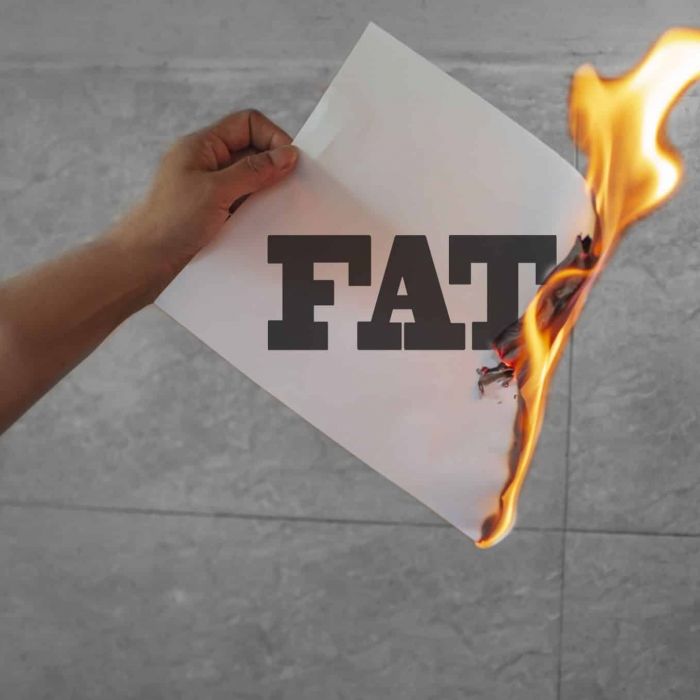Weight loss misconceptions are pervasive, leading many individuals down the wrong path in their quest to shed pounds. In this blog post, we’ll dispel popular myths and provide science-backed advice to assist in successful weight loss. In addition to addressing these weight loss misconceptions, our expert insights will guide you through realistic goal setting for lasting success and striking a balance between nutrition & physical activity. Finally, we’ll share information on promising new treatments in medical weight loss.
Not All Calories Are Created Equal
One common misconception about losing weight is that all calories are equal. However, different foods have diverse effects on your weight and go through various metabolic pathways. Comprehending the dissimilarity between these categories of calories can aid in making wise dietary choices. In this section, we will examine the effects of complex carbohydrates in a healthy diet and how refined carbohydrates can contribute to weight gain.
Complex carbohydrates, such as whole grains, legumes, fruits, and vegetables provide sustained energy without sudden spikes in blood sugar levels. Fiber in complex carbs assists digestion and provides a feeling of satiety, allowing one to avoid over-eating or snacking excessively. This feeling of satiety can aid in losing weight, as it prevents overeating or unnecessary snacking throughout the day.
A diet rich in complex carbs also offers essential vitamins and minerals that support overall health while contributing to an effective weight loss plan. When planning nourishing meals, think about including a range of vibrant fruits and veggies in combination with nutrient-dense whole grains such as quinoa or brown rice.
In contrast to their complex counterparts, refined carbohydrates found in processed foods like white breads, pastries, or sugary cereals contribute significantly to weight gain. Refined carbs lack fiber content due to processing methods which strip away most nutritional value from the original grain source. This results in rapid digestion leading to blood sugar spikes and crashes.
These fluctuations in blood sugar levels can cause increased hunger, making it more challenging to shed pounds. Moreover, refined carbs are often calorie-dense but nutrient-poor, meaning they provide little nutritional value while contributing to overall caloric intake. This makes it easier for individuals following a diet high in refined carbohydrates to exceed their daily recommended calorie allowance without feeling satisfied or nourished.
To avoid the pitfalls of consuming too many refined carbs, consider swapping them out for healthier alternatives like whole grains or vegetables whenever possible. For example, try using whole wheat bread instead of white bread when making sandwiches or opt for brown rice over white rice as a side dish during dinner time. Additionally, try to read food labels carefully and choose products with minimal added sugars or artificial ingredients.
- Choose whole grain options such as brown rice, quinoa, or barley over processed grains like white rice and pasta.
- Incorporate legumes like beans and lentils into your meals regularly – they’re packed with fiber and protein that help keep you full longer.
- Snack on fruits like apples and berries which contain natural sugars along with beneficial nutrients such as vitamins A & C plus antioxidants that support overall health.
- Add plenty of non-starchy vegetables (e.g., leafy greens) throughout your day – these low-calorie foods offer essential vitamins minerals while helping fill you up without adding excessive calories.
In summary, understanding the difference between complex carbohydrates versus refined ones is crucial when striving towards weight loss goals. By incorporating nutrient-rich sources of complex carbs into your diet and minimizing refined carbohydrate intake, you can support a healthier lifestyle while working towards sustainable weight loss success.
Debunking the Myth That Fat Makes You Fat
It’s time to set the record straight: fat doesn’t make you fat. In fact, healthy fats found in foods like avocados, salmon, nuts, seeds, and olive oil can help you shed pounds and improve your overall well-being. Don’t be misled by false ideas that could lead to bad dietary habits or weight gain.
Fats differ in their composition and benefits. Monounsaturated and polyunsaturated fatty acids, found in foods like olive oil, avocado, nuts, and seeds, provide numerous health benefits when consumed in moderation. These essential nutrients help regulate hormones that control appetite and blood sugar levels, while also promoting brain health.
- Monounsaturated Fatty Acids (MUFAs): Found in plant-based oils like olive oil, avocado oil, and peanut butter, as well as almonds, MUFAs promote heart health by reducing LDL cholesterol without lowering HDL good cholesterol.
- Polyunsaturated Fatty Acids (PUFAs): Including omega-3 and omega-6 fatty acids, PUFAs are abundant in fish, flaxseeds, walnuts, and chia seeds. Studies have shown that they aid in inflammation reduction, improved mental clarity, and better mood balance. Source
Protein is an essential macronutrient for losing weight and maintaining muscle mass. High-quality lean sources of protein provide the body with necessary amino acids needed for tissue repair and growth without adding excessive amounts of saturated fat and calories that could hinder progress towards goals.
- Poultry: Chicken and turkey are excellent choices as they contain lower levels of unhealthy fats compared to red meats such as beef, pork, and lamb.
- Fish and Seafood: Rich in omega-3 fatty acids, fish like salmon, mackerel, and sardines not only promote heart health but also aid in satiety, helping keep hunger at bay between meals.
- Eggs: A versatile staple in many diets, eggs offer high-quality complete protein along with vitamins and minerals, including vitamin D and choline, which is important for brain function and development, especially during pregnancy and breastfeeding periods.
- Dairy Products: Low-fat dairy products such as yogurt, cottage cheese, and kefir provide calcium and probiotics in addition to their protein content, making them ideal snack options for those looking to lose or maintain their weight due to the increased feelings of fullness provided by consumption of these items.
- Vegan Options: Lentils, chickpeas, tofu, tempeh, edamame, and beans are all great alternatives to animal-based proteins, offering fiber and additional nutrients essential for a healthy, balanced approach to weight loss.
For successful weight loss, opt for a diet that includes nutritious fats and proteins in moderation alongside regular exercise. Don’t fall for the common misconceptions about weight loss, such as skipping meals or counting calories. Instead, focus on a healthy diet and physical activity, and consider using a fitness tracker to help you stay on track. With the right approach, you can shed pounds and improve your overall health and well-being.
Obesity: A Complex Disorder
Obesity is not merely a matter of dieting; it’s an intricate disorder affected by heredity, environment, and misbeliefs. One such misconception is that skipping meals will help you shed pounds. However, it can lead to weight gain as it slows down your metabolism. Instead, focus on a healthy diet and physical activity to maintain a calorie deficit.
Genetics and environment play a significant role in obesity. Leptin resistance, a genetic factor, can lead to overeating and poor choices. Environmental components, such as availability of nutritious food selections, economic standing and stress levels can also be contributory factors to weight gain. To create an effective weight loss plan, it’s essential to understand how these factors impact your journey.
- Genetics: Inherited traits can influence metabolism rates and appetite regulation hormones like leptin and ghrelin.
- Socioeconomic Status: Lower-income households often face barriers accessing affordable nutrient-dense foods, leading to reliance on processed items high in sugars and unhealthy fats.
- Lifestyle Factors: High-stress jobs, sedentary lifestyles, and inadequate sleep can negatively affect hormone balance and impede successful weight loss efforts. Engaging in physical activity is essential for preserving overall health.
Realistic Goals for Weight Loss
Setting realistic goals is crucial for long-term success in weight loss. Instead of focusing solely on the number of pounds lost, concentrate on making small incremental changes that will improve your overall health and well-being.
- Set SMART Goals: Specific, Measurable, Achievable, Relevant, and Time-bound objectives help maintain focus and motivation throughout the journey. For example, “I want to lose 10 pounds within the next three months by incorporating healthier meals and exercising at least four times a week.”
- Track Progress: Utilize a fitness tracker app or journal to monitor improvements, not only on the scale but also energy levels, mood, sleep quality, and other indicators of wellness. Celebrate victories, big and small, along the way.
- Maintain Flexibility: Understand that setbacks are an inevitable part of the process. Don’t allow them to derail you entirely. Instead, use them as opportunities to reassess and adjust strategies as needed to stay on course toward your goal of becoming a healthier and happier version of yourself.
By incorporating these tips into your approach towards obesity management, you can increase the likelihood of achieving lasting success. Remember that every individual’s journey is unique, and understanding the complex factors influencing obesity and setting realistic goals tailored to your personal circumstances are crucial steps towards a healthier lifestyle.
Exercise’s Role in Weight Loss
Physical activity plays a significant role in weight loss by creating a calorie deficit. But don’t sabotage your efforts by overeating or rewarding yourself with extra food. Balance is key to successful weight management. Regular exercise is vital for long-term success on any weight loss plan. Consistency not only helps create a habit but also ensures that you continue to reap the benefits of physical activity over time.
- Set realistic goals: Establish achievable fitness objectives and gradually increase intensity or duration as you progress.
- Create a schedule: Plan out your workouts ahead of time, making sure to allocate specific days and times for each session.
- Vary your activities: Incorporate different types of exercises into your regimen to prevent boredom and promote overall well-being.
- Track progress with a fitness tracker: Using a fitness tracker can be helpful in monitoring how much physical activity you’re getting throughout the day.
Remember, exercise is only one part of a complete weight loss program that includes calorie control and consistency. By balancing calorie expenditure and consumption while maintaining consistency in your workout routine, you can effectively shed pounds and achieve lasting results on your journey to better health.
Natural Peptide Treatments Show Promising Results
Peptide therapy for weight loss is an innovative medical technology that has the potential to revolutionize how we address medical weight loss. By using peptides, which are small proteins found naturally in our bodies, physicians can target specific areas and create personalized treatments for their patients.
At AgeRejuvenation we apply various methods to help you achieve your desired weight, including diet changes, monitored programs, and medical supplements. A professionally managed, medically assisted weight loss program can be a potent method for individuals striving to effect permanent modifications in their wellbeing and habits. With the correct direction, one can attain long-term changes that can improve your health and quality of life.
Along with these new lifestyle changes, we also provide several tools that will help you achieve your health goals in a timely manner. Among these medical aids to include appetite suppressants and vitamin injections.
At AgeRejuvenation, we offer a semaglutide injection and a Tirzepatide injection (Like Mounjaro™) that reduces food intake by lowering appetite, slowing food digestion in the stomach and decreasing body fat percentage.
Don’t Fall for Weight Loss Myths
Inaccurate information can sabotage your progress towards a healthier lifestyle. Remember these important and practical weight loss tips:
Calorie counting isn’t the only way to lose weight – focus on balanced nutrition and physical activity instead.
- Forget about cutting out all fats – healthy fats are essential for a well-rounded diet.
- Timing is everything – but not when it comes to meal frequency. Focus on consistency instead.
- Looking for an extra boost? Consider natural peptide treatments to support your weight loss journey.
- Set realistic goals and celebrate milestones along the way to stay motivated.
- Mindful eating habits can make a big difference – slow down and savor each bite.
- Customize your meal plan based on your unique needs and preferences.
Remember, small changes over time can lead to big results – prioritize your health and well-being. Start your weight loss journey right here at AgeRejuvenation.








